Thursday, August 28, 2008
Darwin Overdose
To quote Mark Batterson, "Much of the angst created (pardon the pun) by the Darwinian overdose is the subconscious result of being taught that we are accidents descended from apes or amoeba. If you really believe this, it's an epistemological parasite that eventually sucks the meaning out of life.
How sad.
For more from me (though on entirely differennt topics) go to www.robsingleton.net
Monday, August 18, 2008
My Absence
www.robsingleton.net
Thursday, April 17, 2008
Check your brain at the (School) door
Expelled: Kicking Intelligence Out of Our Schools
This new film is causing quite a stir as it looks at the anti intelligent design (another name for, “Life by random stupidity”) school and the lunacy of protecting at all costs the scientific status quo…
It stars Ferris Bueler’s teacher from, Ferris Bueller’s Day Off—”Bueller? Bueller? Bueller?”
That ring a bell?
Well, this guy (Ben Stein) was that teacher, but he is also a writer, public speaker, gutsy debater, and political activist. Recently, he became deeply involved in a film project that challenges the neo-Darwinian scientific community and exposes their hostility to intelligent design and all those who believe in it. The producers of Renewing Your Mind caught up with Mr. Stein during a preview of his new film entitled Expelled: No Intelligence Allowed. The movie opens nationwide April 18.
Now, before I say another word about this movie, let me first make a prediction. And I’ll hold myself to the Old Testament standard for prophets on this one (death by stoning if you get even one prophecy wrong). That’s how confident I am. So go ahead and gather your rocks, but you won’t be using them on me. No, the critics are too busy wasting all there ammo on the movie. Saying things like:
Where are the facts? Ben Stein is a horrible, boring, manipulative little man! <— Not sure where this fits in a critic of the movie. The movie is slammed for it’s supposedly poor production, it’s shrouded attempt at forcing religion on us all (help me, please, the nuns are trying to hurt me!), it’s lack of facts, it’s peer pressure approach, the target audience, etc. Almost sounds like…
Well, the Darwinist’s typical approach.
Now I remember where I’ve seen that. In short, there seems to be an almost panicky attempt to discredit this film with bullying and condescension and rolling out the all out blogging blitz!
I think Shakespeare might have described this bizarre behavior best in his play, Hamlet, act III, when the queen said, “The lady doth protest too much, methinks.”
Just makes me want to see this film all the more.
You won’t want to miss this one!
Check out these other sites for more…
http://www.cashill.com/intellig_design/expelled_review.htm
http://www.godandscience.org/apologetics/expelled.html
http://www.spectator.org/dsp_article.asp?art_id=12759
Wednesday, April 16, 2008
Only a fool...
Sure there is no God?
 This is a continuation of yesterday’s post. I have a few more amazing moments from the Georgia Aquarium to share with you all.
This is a continuation of yesterday’s post. I have a few more amazing moments from the Georgia Aquarium to share with you all.
Perhaps the greatest Homer Simpson moment (DOOP!) was seeing all the incredible efforts human beings have to go through in order to keep the fish in one of the relatively small exhibits alive. Here is a sampling:
- There is a waterfall (or water dump) that occurs (it’s on a timer) every 2 minutes in order to simulate the waves and currents common to thriving reef areas.
- Another affect is that the cascading water stirs up the other water and pumps in oxygen at a pace that never stops. If it stops or goes off timing just a bit, fish will begin to die.
- Above the small exhibit are huge florissant lights and blue lights and lights I never heard of that simulate sunlight so that the proper amount of algae and plankton can thrive.
- There are heaters
- There are coolers
- The temperature needs to stay no higher than about 83 or so and no lower than 77, or, fish die.
There’s a lot more. Our guide went into great detail and unfortunately, I didn’t write it down. Suffice it to say, a picture is worth a thousand words, so take a closer look at the picture above.
Ah huh.
Looks like the lab from that show, “Bill Nie the Science Guy.”
Compare that to God’s lab.
- Sunlight
- Coral
- Waves and current from the ocean
- All natural
- Perfectly balanced
- Man can only hurt, not help the real environment.
- Oh, and God’s aquarium for similar reef presentations is slightly bigger. It’s called the Great Barrier Reef!
Mind numbing.
So everyone of us who looks at creation and comes up with any conclusion other than God is without excuse.
God is that obvious.
18 But God shows his anger from heaven against all sinful, wicked people who suppress the truth by their wickedness.[i] 19 They know the truth about God because he has made it obvious to them. 20 For ever since the world was created, people have seen the earth and sky. Through everything God made, they can clearly see his invisible qualities—his eternal power and divine nature. So they have no excuse for not knowing God.
21 Yes, they knew God, but they wouldn’t worship him as God or even give him thanks. And they began to think up foolish ideas of what God was like. As a result, their minds became dark and confused. 22 Claiming to be wise, they instead became utter fools. 23 And instead of worshiping the glorious, ever-living God, they worshiped idols made to look like mere people and birds and animals and reptiles.
24 So God abandoned them to do whatever shameful things their hearts desired. As a result, they did vile and degrading things with each other’s bodies. 25 They traded the truth about God for a lie. So they worshiped and served the things God created instead of the Creator himself, who is worthy of eternal praise! Amen. 26 That is why God abandoned them to their shameful desires. Even the women turned against the natural way to have sex and instead indulged in sex with each other. 27 And the men, instead of having normal sexual relations with women, burned with lust for each other. Men did shameful things with other men, and as a result of this sin, they suffered within themselves the penalty they deserved. Romans 1:18–27 (NLT)
What a weekend! Here are some more pictures from the Aquarium. Enjoy!




















The strangest creatures of all!


Friday, March 7, 2008
A Dying Theory
The following article is posted here to show what is really going on behind the scenes with "evolution."
Read it and weep -- or, rejoice, whatever your position dictates.
Mazur: Altenberg! The Woodstock of Evolution?Tuesday, 4 March 2008, 1:49 pmArticle: Suzan Mazur |
Altenberg! The Woodstock of Evolution?
By Suzan Mazur
It's not Yasgur's Farm, but what happens at the Konrad Lorenz Institute in Altenberg, Austria this July promises to be far more transforming for the world than Woodstock. What it amounts to is a gathering of 16 biologists and philosophers of rock star stature – let's call them "the Altenberg 16" – who recognize that the theory of evolution which most practicing biologists accept and which is taught in classrooms today, is inadequate in explaining our existence. It's pre the discovery of DNA, lacks a theory for body form and does not accomodate "other" new phenomena. So the theory Charles Darwin gave us, which was dusted off and repackaged 70 years ago, seems about to be reborn as the "Extended Evolutionary Synthesis".
Papers are in. MIT will publish the findings in 2009 – the 150th anniversary of Darwin's publication of the Origin of Species. And despite the fact that organizers are downplaying the Altenberg meeting as a discussion about whether there should be a new theory, it already appears a done deal. Some kind of shift away from the population genetic-centered view of evolution is afoot.
Indeed, history may one day view today's "Altenberg 16" as 19th century England's "X Club" of 9 – Thomas Huxley, Herbert Spencer, John Tyndall, et al. – who so shaped the science of their day.
Here then are the Altenberg 16:
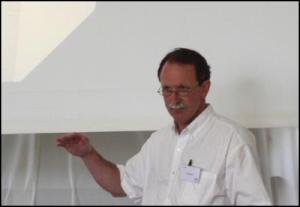
John Beatty, University of British Columbia
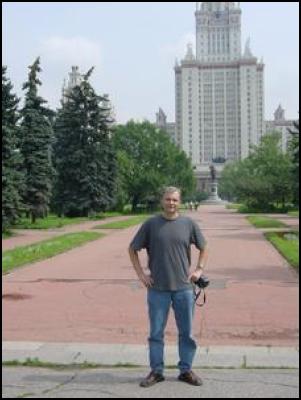
Sergey Gavrilets, University of Tennessee
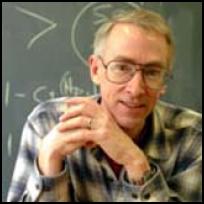
David Sloan Wilson, Binghamton University
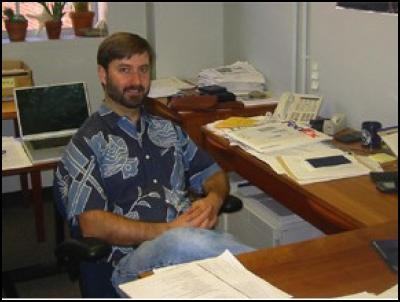
Greg Wray, Duke University
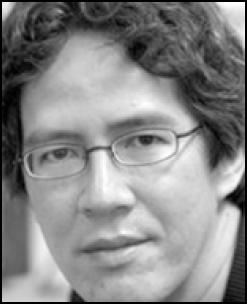
Michael Purugganan, New York University
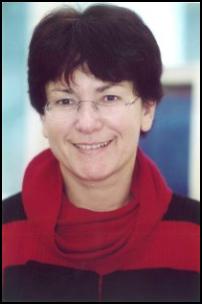
Eva Jablonka, Tel-Aviv University
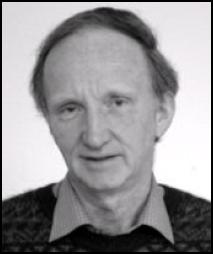
John Odling-Smee, Oxford University
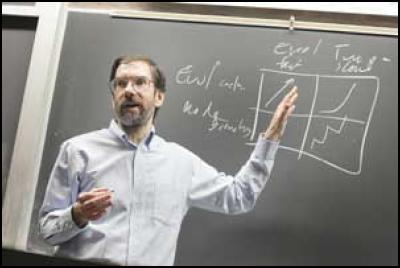
David Jablonski, University of Chicago
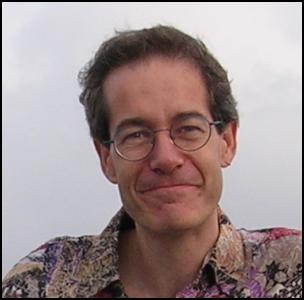
Massimo Pigliucci, SUNY Stony Brook
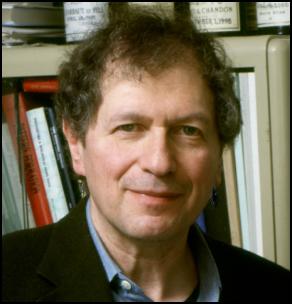
Stuart Newman, New York Medical College

Gerd Muller, University of Vienna
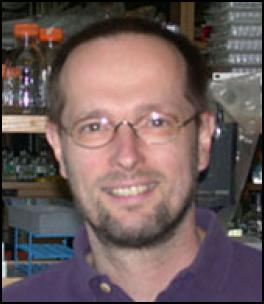
Gunter Wagner, Yale University
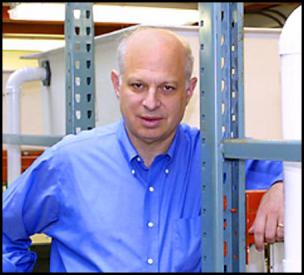
Marc Kirschner, Harvard University
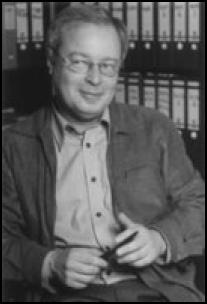
Werner Callebaut, Hasselt University
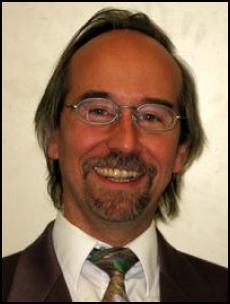
Eors Szathmary, Collegium Budapest
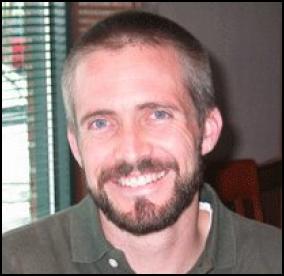
Alan Love, University of Minnesota
A central issue in making a new theory of evolution is how large a role natural selection , which has come to mean the weeding out of traits that don't favor survival, gets to play.
Natural selection was only part of Darwin's Origin of Species thinking. Yet through the years most biologists outside of evolutionary biology have mistakenly believed that evolution is natural selection.
A wave of scientists now questions natural selection's relevance, though few will publicly admit it. And with such a fundamental struggle underway, the hurling of slurs such as "looney Marxist hangover", "philosopher" (a scientist who can't get grants anymore), "crackpot", is hardly surprising.
When I asked esteemed Harvard evolutionary geneticist Richard Lewontin in a phone conversation what role natural selection plays in evolution, he said, "Natural selection occurs."
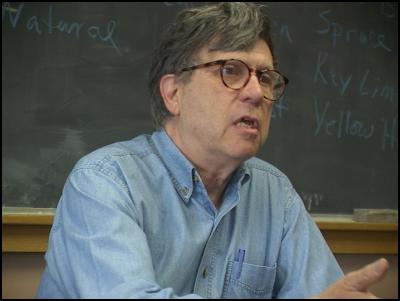
Richard Lewontin
Lewontin thinks it's important to view the living world holistically. He says natural selection is not the only biological force operating on the composition of populations. And whatever the mechanism of passage of information from parent to offspring contributing to your formation, what natural selection addresses is "do you survive?"
In an aside, Lewontin noted natural selection's tie-in to capitalism, saying, "Well, that's where Darwin got the idea from, that's for sure. . . He read the stock market every day. . .How do you think he made a living?"
Stanley Salthe, a natural philosopher at Binghamton University with a Ph.D. in zoology -- who says he can't get published in the main stream media with his views – largely agrees with Lewontin.
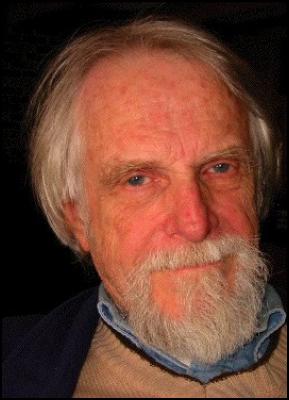
Stanley Salthe
But Salthe goes further. He told me the following:
"Oh sure natural selection's been demonstrated. . . the interesting point, however, is that it has rarely if ever been demonstrated to have anything to do with evolution in the sense of long-term changes in populations. . . . Summing up we can see that the import of the Darwinian theory of evolution is just unexplainable caprice from top to bottom. What evolves is just what happened to happen."
Several months ago, Salthe hosted an intense email debate among leading evolutionary thinkers which I was later let in on. It followed the appearance of an article by Rutgers University philosopher Jerry Fodor in the London Review of Books called "Why Pigs Don't Have Wings".
In the piece, Fodor -- who told me he left MIT because he wanted to be closer to opera in New York -- essentially argues that biologists increasingly see the central story of Darwin as wrong in a way that can't be repaired.
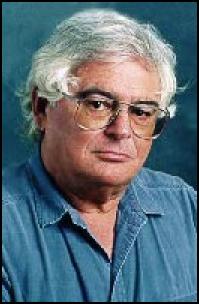
Jerry Fodor
When I called Fodor to discuss his article, he joked that he was now in the Witness Protection Program because he'd been so besieged following the LRB piece. But we met for coffee anyway, on Darwin's birthday, as frothy snowflakes floated to ground around Lincoln Center. After a cappuccino or two, Fodor summed things up saying we've got to build a new theory and "all I'm wanting to argue is that whatever the story turns out to be, it's not going to be the selectionist story".
Fodor also told me that "you can't put this stuff in the press because it's an attack on the theory of natural selection" and besides "99.99% of the population have no idea what the theory of natural selection is".
Fodor noted in the LRB article that evolutionary investigators are looking to the "endogenous variables" for answers, which leaves plenty of room for interpretation. On that point there is considerable agreement.
But Richard Lewontin told me he resents evolutionary biology being "invaded by people like Jerry Fodor and others" as well as by some from within the field who don't really know the "mechanical details down to the last".
Evolutionary biologist and philosopher Massimo Pigliucci is also critical of Fodor for not seeing "the big picture". Pigliucci is a principal architect of the "Altenberg 16" meeting as well as a participant. That rare combination -- a consummate scientist with a sense of humor!
I met him one afternoon across the street from the New York Public Library during a break from his research. He had a birthday gift in one arm. Pigliucci says he enjoys life.
But while he thinks Fodor is "dead wrong" about natural selection becoming irrelevant to the theory of evolution, he does recognize the value philosophers, in general, bring to science. Several of the Altenberg 16 participants are, in fact, philosophers – including, of course, Pigliucci.
Pigliucci says philosophers have two roles to play in science. One is to keep scientists – who are focused on the details – honest by looking from a distance and asking the big questions: "Well, is the paradigm that you're working with, in fact, working? Is it useful? Could it be better?"
The second is as public intellectuals. He thinks some of the best responses he's seen against Intelligent Design and Creationism, for instance, have been by philosophers. Pigliucci's philosophy web site Rationally Speaking carries the words of the Enlightenment's Marquis de Condorcet describing a public intellectual as one who devotes "him or herself to the tracking down of prejudices in the hiding places where priests, the schools, the government and all long-established institutions had gathered and protected them".
So what are those other engines of evolution that threaten to decommission natural selection – those "endogenous variables" -- of which Jerry Fodor speaks in his now infamous "Why Pigs Don't Have Wings" article?
Pigliucci cites epigenetic inheritance as one of the mechanisms that Darwin knew nothing about. He says there is mounting empirical evidence to "suspect" there's a whole additional layer chemically on top of the genes that is inherited but is not DNA. Darwin, of course, did not even know of the existence of DNA.
Lewontin asks whether it's "suspect" or "know"?
Nevertheless, these kinds of phenomena are part of what's loosely being called self-organization , in short a spontaneous organization of systems. Snowflakes, a drop of water, a hurricane are all such spontaneously organized examples. These systems grow more complex in form as a result of a process of attraction and repulsion.
So, coming up with a "sound" theory for form is one of the big challenges for the Altenberg 16.
Developmental biologist Stuart Kauffman is clearly one who thinks we must expand evolutionary theory. Kauffman, now head of the Biocomplexity and Informatics Institute at the University of Calgary, is known for his decades-long investigations into self-organization. He's been described by one evolutionary biologist as a "very creative man, try reading one of his books" who said in the next breath that "if he [Kauffman] really put an effort into understanding evolutionary biology -- the basic theoretical framework that we have -- I think he could have come a lot further".
Meanwhile, Kauffman's had a breathtaking career, beginning as a medical doctor, honored as a MacArthur fellow (genius) and has worked with Nobel prize winner Murray Gell-Mann at the Santa Fe Institute where he first studied self-organization. Looking at simple forms like the snowflake, he noted that its "delicate sixfold symmetry tells us that order can arise without the benefit of natural selection". Kauffman says natural selection is about competition for resources and snowflakes are not alive -- they don't need it.
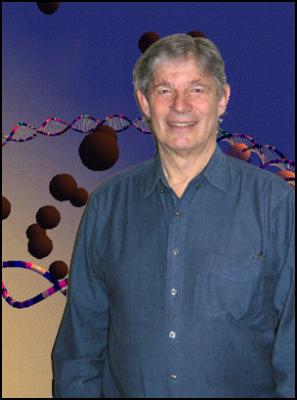
Stuart Kauffman
But he reminded me in our phone conversation that Darwin doesn't explain how life begins, "Darwin starts with life. He doesn't get you to life."
Thus the scramble at Altenberg for a new theory of evolution.
But Kauffman also describes genes as "utterly dead". However, he says there are some genes that turn the rest of the genes and one another on and off. Certain chemical reactions happen. Enzymes are produced, etc. And that while we only have 25,000 to 30,000 genes, there are many combinations of activity.
Here's what he told me over the phone:
"Well there's 25,000 genes, so each could be on or off. So there's 2 x 2 x 2 x 25,000 times. Well that's 2 to the 25,000th. Right? Which is something like 10 to the 7,000th. Okay? There's only 10 to the 80th particles in the whole universe. Are you stunned?"
It's getting pretty staggering I told him. But there was more to come as he took me into his rugged landscapes theory – hopping out of one lake into a mountain pass and flowing down a creek into another lake and then wiggling the mountains and changing where the lakes are – all to demonstrate that the cell and the organism are a very complicated set of processes activating and inhibiting one another. "It's really much broader than genes," he said.
Kauffman presents some of this in his new book Reinventing the Sacred .
And natural selection is back in the equation.
In his book Investigations (2000), Kauffman wrote that "self-organization mingles with natural selection in barely understood ways to yield the magnificence of our teeming biosphere". He said he's still there, but now thinks natural selection exists throughout the universe.
Stuart Pivar, has been investigating self-organization in living forms but thinks natural selection is irrelevant – and has paid the price for this on the blogosphere. Pivar's an extremely engaging man, trained as a chemist and engineer – a bit of a wizard who loves old art. He was a long-time friend of Andy Warhol and a buddy of the late paleontologist Steve Gould, who continues to serve as an inspiration for Pivar's work.

Stuart Pivar
Steve Gould's Natural History magazine editor Richard Milner, by the way, describes Gould as "a popular articulator of Darwinian evolution to a new generation, while privately, his creative and rebellious mind sought to move beyond it."
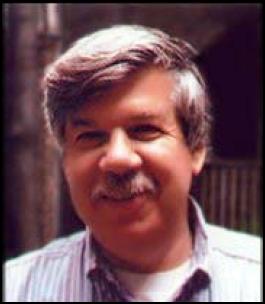
Steve Gould
Milner , himself, is a Darwinian scholar and author of the Encyclopedia of Evolution and Darwin's Universe (forthcoming 2009). He says Gould was intrigued with theories of how natural selection may act on levels beyond the individual (social groups, species), or at different phases of the life cycle (evolution-development), and how other embryological and evolutionary phenomena (heterochrony, neoteny) may influence or impact evolution. And he notes that "Gould took issue with those who used natural selection carelessly as a mantra, as in the evidence-free "just-so stories" concocted out of thin air by mentally lazy adaptationists".
Gould also famously rejected the reductionism of Richard Dawkins' "selfish gene" theory, Milner says further, and was well aware that there seemed to be a disconnect between the models of genes, DNA, and the development of individual plants or animals.
Says Milner:
"Steve was one of the first evolutionary biologists, with Richard Lewontin, to publish the view that biology offered no plausible mechanism – a missing "theory of form," if you will – for how these genomic "blueprints" are followed in constructing phenotypes of living organisms."
I visited Stuart Pivar at his place just off New York's Central Park recently. It has the feel of a 19th century castle with interesting stuffed animals, rocks and other exotica, mixed in with important paintings and bronzes. Unlike most scientists I spoke with for this story, Pivar is not dependent on government grants to carry out his work.
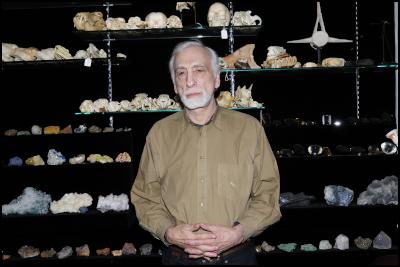
Click for big version
Pivar says his theory is this. Body form is derived from the structure in the egg-cell membrane. And he handsomely illustrates in his book, The Engines of Evolution , how various species arise from the same basic structure, the Multi-torus, so-named by its discoverers -- mathematicians, biologists Jockusch and Dress in 2003.
Pivar told me this structure was confirmed recently by Eric Davidson's identification of the sea urchin embryo as a dynamic torus, resembling a slow-moving elongated smoke ring -- as in amoeboid motion.
If there's a lineage to his work, Pivar says it's rooted in Goethe, who observed that all life has a certain look to it – therefore it must be based on a form he called the "urform" – although Goethe never found the urform. Pivar's also been influenced by the 19th century scientist Wilhelm His, who made models using tubes of wax and pressed them to demonstrate how mechanical manipulation could generate the shape of the stomach, etc.
"The great D'Arcy Thompson was an inspiration as well," he said, citing Thompson's book On Growth and Form in which he described how every form in nature could be duplicated in the lab. Pivar said it's unfortunate Thompson never put the whole thing together to make a model, but that he has done just that.
He says he's shown that if you take a tubular form and you twist it this way or that way you can generate the shape of anything in nature. He notes this is equivalent to the organization of chemistry by the periodic table. This twisting action is how tigers get stripes, butterflies wing patterns, as well as how the human embryo forms.
In Engines, he has published what he describes as "the blueprints" – the construction blueprints for the human body, fruit fly, lobster, jellyfish -- the scheme by which all nature forms.
Stanley Salthe says he considers the theory of self-organization itself "up & coming" and thinks Pivar's idea is "reasonable".
Richard Lewontin, told me the following:
"I don't know what his [Pivar's] theory is but there's no question that the development of an egg is not dependent solely on the genes and nucleus, but on the structure of the egg as laid down to some extent. There are proteins that are there. There are non-genetic factors and I wouldn't be surprised if the actual structure of the cell membrane had some influence on the successive divisions that occur."
However, Lewontin added that "it's one thing to say some effect than it is to say I have a theory that it's allthere."
Pivar insists "It's all there."
Massimo Pigliucci does not consider Pivar's test with "wiggly water tubes" empirical evidence.
Pivar disagrees saying he presents a convincing model based on geometry and the animated drawings in his book but laments that he can't get serious science circles to review Engines. He attributes this reluctance to scientists being discouraged about taking a chance on ideas originating outside their peer group plus their dependence on government grants – which are tied-in to support for natural selection.
Pivar's also a keen observer of some of the conflicts of interest tainting science. He accuses the National Academy of Sciences of excluding other approaches to evolution but natural selection in their recent book Science, Education and Creationism.
Richard Lewontin resigned from NAS over the issue of one branch of NAS accepting government funds for secret weapons programs.
Pivar is also critical of church and state influences in science education, like the Astrobiology Primer funded by NASA, whose editor is a priest.
Fodor goes further, he says, "Astrobiology doesn't exist. What are the laws?"
Finally Pivar thinks non-profits advising schools on science education, like the National Center for Science Education, should not have religions represented on their board of directors. Pivar is obliquely referring to NCSE's board member from the. Church of Jesus Christ of Latter Day Saints-funded Brigham Young University .
Curiously, when I called Kevin Padian, president of NCSE's board of directors and a witness at the 2005 Kitzmiller v. Dover trial on Intelligent Design, to ask him about the evolution debate among scientists – he said, "On some things there is not a debate." He then hung up.
Massimo Pigliucci finds it objectionable that "the study of forgiveness" is supported by the John Templeton Foundation, which funds the understanding of religion from a Christian view of God. Pigliucci says the rationale of scientists who take this money is that it's hard to get grants, that they have to put their children through school, etc. "Well, yes -- but there has to be a limit," he thinks.
As for educating the public about evolution, paleontologist Niles Edredge, a co-author with Steve Gould of the punctuated equilibrium theory – which Eldredge reminded me was based on one of his early papers – says that increasingly scientists are being encouraged to include public outreach when asking for government grants.
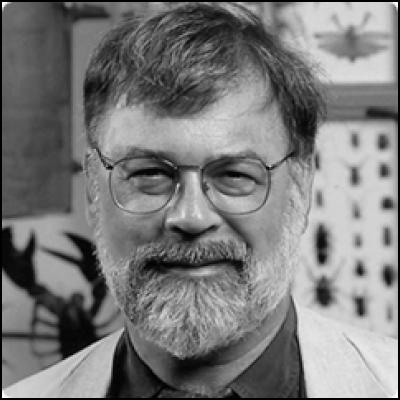
Niles Eldredge
Eldredge told me about the new journal that he and his son Gregory, a high school teacher in New York, are publishing through Springer called: Outreach and Education in Evolution. It debuts in March and will feature peer-reviewed articles about evolution.
I also spoke with evolutionary biologist Michael Lynch at his lab at Indiana University to get his perspective on the evolution debate.
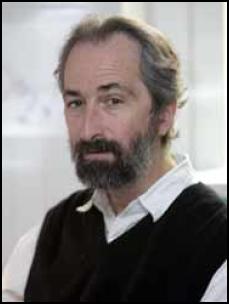
Michael Lynch
Lynch is the author of the recent book The Origins of Genome Architecture. He says it's hard enough just to be a molecular biologist or a cell biologist and that reaching out to communicate to other fields is a "daunting task". He doesn't know why there's a push for an Extended Evolutionary Synthesis and says, "Everyone's bantering around these terms complexity, evolvability, robustness, and arguing that we need a new theory to explain these; I don't see it."
Lynch thinks the big challenge is to connect evolution at the genome level with cell development and the larger phenotypic level.
I asked Richard Lewontin whether it was premature to put together a new synthesis. He said he wouldn't use the world "premature" and added, "Why would we want to do that? To say it's premature suggests that one of these days we will have to. I don't know what we'll have to do in the future."
He continued:
"The so-called evolutionary synthesis – these are all very vague terms. . . . That's what I tried to say about Steve Gould is that scientists are always looking to find some theory or idea that they can push as something that nobody else ever thought of because that's the way they get their prestige. . . .they have an idea which will overturn our whole view of evolution because otherwise they're just workers in the factory, so to speak. And the factory was designed by Charles Darwin."
Clearly a new theory of evolution will impact all our lives. But how? Perhaps a global public broadcast of the "Altenberg 16" proceedings is the answer to that question.
My prediction?
Most will keep on riding the dead horse of Darwinian evolution even long after it skeletonizes and fossilizes .
Friday, February 29, 2008
Believe it or not -- Part 2
Here's what I said a lot of them and liberal thinking (sorry, 'progressives') think these days;
"Truth is Relative"
But before I even get to this, let me rope off a rabbit trial some of you might likely be headed down already. The thought that I am calling all liberals bad.
Liberal is not bad.
I consider myself a liberal thinker, but not a liberal when it comes to an 'anything goes mentality.' By liberal, I mean 'free thinking,' by liberal, the group I am referring to most often means, as I said, 'anything goes.' I'm talking about a careful, considerate approach to life (<-- insert sarcasm here) that can often be boiled down to, 'if it feels good, do it!' But these kinds of philosophers seldom extrapolate that line of thinking out to its natural, disastrous ends.
For example, a pedophile has a certain definition of what falls into the category of "if it feels good, do it," that I am absolutely positive most small children would not agree to.
Rabbit Trail Alert! Sorry to have to do this--especially to the average, savvy reader, but there are, unfortunately some out there that read for little sound bites they can twist and bend for their counterargument so it becomes necessary at times to use a piece of chalk and draw a picture for them. No, I'm not calling progressives and atheists pedophiles. I am merely exposing a serious flaw when some of their reasoning is played out all the way.
Got it? Good.
So, free thinking = good
anything goes = bad
Now, believe it or not, if you want the no boundaries lifestyle bad enough, it's eventually going to lead to the absurd notion that truth is relative every time.
Why?
Because all you have to do when you want to do something that isn't convenient or...hmm, what's that word I'm looking for, um...Oh! 'legal,' is to claim that the restriction (law, boundary) in question is true for YOU, but not for ME.
The argument is really nothing more than a way to live without boundaries. It's not built on truth or facts of any kind. How could it be? This philosophy says there are no absolutes. But a closer look reveals that the subscribers of this bankrupt way of thinking seldom live by it themselves.
In the area of absolutes, let's just deal with their least favorite, "moral absolutes." Why is this by far their least favorite? Because it interferes the most with their ,'anything goes' philosophy. They are far less likely to push the 'no absolutes' argument in areas of verifiable science, because, as I said, it's verifiable. In other words, all you have to do is open your eyes to see that there are scientific truths and absolutes. This is why, when the statement "there are no absolutes" is made, it is almost always in reference to moral absolutes.
It's a strange thing, really. I mean, I can't see the forces behind 'gravity,' but I can observe its undeniable effects and, therefore accept it as an absolute truth. However, it's existence does not hinge on whether or not I accept it. Therefore, we ought to accept certain undeniable moral truths based on their 'undeniable affects' even though morality is not something I can pick up and observe. The disastrous affects of denying absolute moral truth can most certainly be verifiably observed.
But that really would be a rabbit trail, so let me stick to the issue at hand--moral absolutes.
Here's what I want to do.
I'd like to hear from a few of my favorite atheist on this. Feel free to comment below on this whole idea of moral relativism.
- Does it exist (moral absolutes)?
- Is it the same for everyone? Amsolute?
- Is it different for everyone? Relative?
- If moral absolutes do exist, what are they?
- If they do not exist, what are the standards we live by?
- If they do not exist, but there are undeniable standards by which we all live, why listen to them?
- And anything else you'd like to add on this topic
I really want to address the questions you all raise rather then chasing down every path this discussion potentially leads down. So, feel free to comment over the next few days and I will comment back.
Sunday, February 24, 2008
Believe it or not Part 1
Just by a show of hands, anyone here using America Online?
In three of the services there was no one! Not a single person raised their hand! This would be odd in a church of several hundred, but over 2,000!? Now, grant it, there were a dozen here and there (we have seven weekend services -- there's bound to be a few) but for the most part it was "American online" instead of, 'America.'
But I digress.
I was trying to see if anyone else ever saw those weekly "guess what really happened?" in Hollywood quizzes. Not much chance there was going to be a real familiarity there when so few even have AOL anymore, so I explained what it was.
It's a series of about 10 questions. Some are true and some are false. You have to guess which is which. And here's the rub, it's not that easy because the made up stuff isn't any more whacked out than what really happens in these people's lives!
For example, "Brittney Spears was taken to the psych ward...true or false?
That one is true
But then they might throw something like this in,
Brittney Spears caught wandering the streets mutterring Justin Timberlake's name over and over again...true or false?
Actually, that's kind of easy. It's true.
NO! I'm kidding. It's false. But I could easily see her doing this. It's not really far fetched given some of her recent behavior.
Which leads me to the point of this blog.
We seem to be morphing into an incredibly lazy and gullible culture when it comes to seeking truth. Heck, we can't even agree on what truth is anymore.
Many universities actually teach that truth is relative and that there is no absolute truth.
How dumb is this?
Is this higher learning?
I'll address this more in part 2